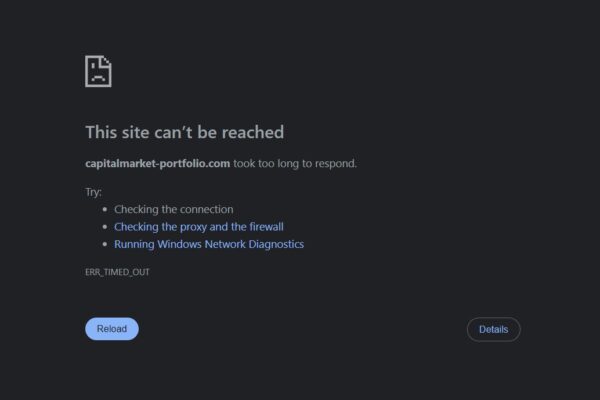EarnGPT.net Scam Review -The Earn-With-GPT Illusion
In the world of online earning schemes, few promises are as seductive as the claim that you can “earn with GPT.” The idea feels futuristic — plug in, complete simple tasks (or so they say), and watch your account grow. But underneath the shiny slogan and the minimalist design of EarnGPT.net, there lurks a structure that raises serious questions.
In the review, we peel back the façade, highlight patterns commonly associated with fraudulent platforms, and explain why many experts and regulators caution strongly against engaging with it.
1. The First Encounter: A Gleaming Promise
Imagine someone scrolling through social media or a “work from home” board and seeing an ad:
“Use AI, complete tasks, get paid. No experience needed.”
That’s often how people land on EarnGPT.net. The site paints a compelling picture:
-
A clean, modern interface.
-
Bold, confident messaging: “Earn with GPT,” “Passive Income with AI.”
-
Suggestions of high payouts, referral bonuses, and low barriers to entry.
On the surface, it looks promising. But a production of this quality might be exactly that — a production. And in this story, looks are deceiving.
2. Shadows Behind the Screen: Who Really Owns EarnGPT.net?
No legitimate business built around earning money online would hide its identity — but EarnGPT.net does.
-
Domain registration is masked: According to ScamAdviser, the WHOIS record is hidden.
-
Privacy service: The domain is registered via a privacy-protect service (PrivacyProtect, LLC), which shields the real ownership details.
-
Server reputation: ScamAdviser notes that other low-trust websites share the same server.
In a documentary about online fraud, this is where the camera pans in slowly: anonymity is often the first building block of deception.
3. Regulatory Warning from Financial Authorities
This isn’t just speculation — regulators have already sounded the alarm.
-
The Alberta Securities Commission (ASC) lists EarnGPT on its “Investment Caution List,” explicitly warning that EarnGPT is not registered to trade or advise on securities or derivatives.
-
According to CyberscamRecovery, the platform “lacks location details and regulatory status,” placing users in a legally and financially vulnerable position.
Regulated trading or earning platforms must obey financial laws, protect customer funds, and operate transparently. EarnGPT doesn’t meet these core criteria.
4. A Questionable Business Model: “Earn With GPT”? Or Earn From You?
The pitch is powerful: “Use AI, earn crypto or cash.” But the operational details are murky.
From available reviews and expert commentary:
-
There is no verified business model — it’s unclear how EarnGPT transforms user activity into legitimate earnings.
-
Reports suggest unrealistic earning promises. The platform encourages task completion, referrals, or depositing money to unlock higher earning tiers.
-
According to Zorya Capital, there is no proof of real trading or payout infrastructure — in other words, the money users “earn” may never truly leave the system.
In a scam-style narrative, this is where the “easy money” turns out to be a mirage.
5. Domain Age and Website Stability
Documentary investigations into fraud often trace the domain’s history — because many scam platforms fade fast.
-
EarnGPT.net’s domain was registered on September 11, 2023, which makes it relatively young.
-
Despite having a valid SSL certificate (which simply means the site is “securely connected”), hiding one’s identity and operating from a newly created domain are red flags when large sums of money are at stake.
-
ScamAdviser also notes that other suspicious sites are hosted on the same server.
In other words: this is not a well-established, long-trusted platform. It’s newly built, anonymous, and possibly disposable.
6. Trust & Reputation: Mixed Signals, Mostly Negative
What are users actually saying?
-
ScamDoc gives EarnGPT an average “digital trust” score.
-
ReviewBloc lists the site with a trust score of 0, indicating high suspicion and no confirmed positive user feedback.
-
Cyberscam Recovery warns that the platform’s lack of regulation and transparency presents a serious risk.
When an “earn online” platform claims legitimacy, but its trust indicators are weak or contradictory, the safest assumption may be: this is a structured risk, not a legitimate business.
7. Structural and Operational Risks Highlighted
Putting all the pieces together, here’s a breakdown of the most concerning structural risks:
| Risk Area | EarnGPT.net Warning Signs |
|---|---|
| Transparency | Hidden WHOIS, no clear ownership. |
| Regulation | Not registered to trade or advise, per ASC. |
| Earning Mechanism | Unclear; no verified payout track record. |
| Domain Age | Very young domain, registered 2023. |
| Server Reputation | Shares hosting with other low-trust sites. |
| User Trust | Low trust score, few or no verified positive reviews. |
These are not minor red flags. Combined, they form a strong case for concern.
8. The Psychological Playbook
Scam platforms don’t just rely on technical deception — they rely on psychological manipulation.
EarnGPT.net is likely using tactics that include:
-
Authority appeal: “AI” + “GPT” gives the impression of cutting-edge legitimacy.
-
FOMO: Promises of limited earning windows and referral bonuses to trigger urgency.
-
Social proof (illusory): Claims of “people earning daily” without verifiable testimonials.
-
Task-based engagement: Users may be asked to complete tasks (watch videos, click links), believing they are “working,” while the reward structure remains opaque.
These tactics are typical of modern online scams — especially those that target “work from home” seekers.
9. The Documentary Verdict: Is EarnGPT.net a Scam?
After deeply examining the structure, claims, and warning signals, the conclusion is firm:
EarnGPT.net is extremely high-risk and likely operates as a scam or fraudulent earning scheme.
-
It is unregulated — major red flag.
-
Its owner identity is hidden, making accountability impossible.
-
The earning model is unclear, possibly unsustainable without infinite new sign-ups or deposits.
-
The domain is very young, hosted along with other suspicious sites.
-
Trust metrics from third-party sites are poor or mixed at best.
In a real “earn with GPT” setup, you would expect transparency: regulated operations, clear payout mechanisms, verifiable users, and a long operational history. That’s not what EarnGPT.net provides. What it appears to provide is a slick façade and a structure built to maximize risk — for you, not for them.
Report EarnGPT.net Scam and Recover Your Funds
If you have lost money to EarnGPT.net, it’s important to take action immediately. Report the scam to Jayen-consulting.com, a trusted platform that assists victims in recovering their stolen funds. The sooner you act, the better your chances of reclaiming your money and holding these fraudsters accountable.
Scam brokers like EarnGPT.net continue to target unsuspecting investors. Stay informed, avoid unregulated platforms, and report scams to protect yourself and others from financial fraud.
Stay smart. Stay safe






